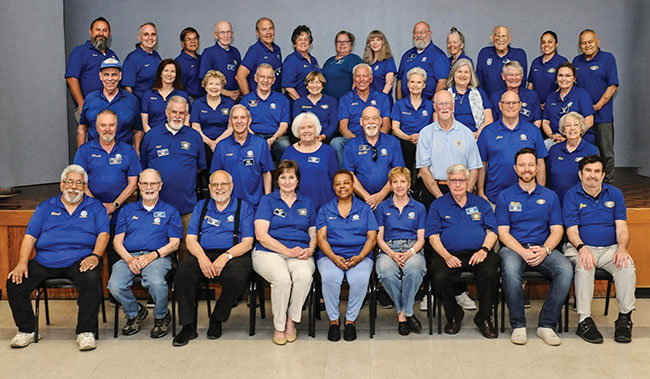Think you own personal content on social media? You don’t

by Peter Weinberger | pweinberger@claremont-courier.com
There’s been a lot in the news about social media this week after the Supreme Court said social media platforms could combat misinformation by removing posts. This decision is a huge victory for free speech advocates, and was an issue supported by the Biden administration. Conservatives argued that unchecked speech on social media was important to the work of pundits, activists and scientists, and was protected by the First Amendment.
Ultimately, challengers failed to show “specific instance of content moderation that caused them identifiable harm,” wrote Justice Amy Coney Barrett.
Social media has become a swamp of misinformation, lies, and bullying, with little regard for accuracy. This entire issue began over government’s efforts to have social media companies remove posts that were clearly misinformation. This was especially true during the Covid pandemic and all the politically motivated ugliness that came with it.
This may sound bad for journalism, but I don’t believe it is. The national harm from misinformation is enormous, and social media is a big part of the problem. But it’s more than just user comments that need moderation. Given how companies like Facebook (Meta), X (formerly Twitter) and Google manage the information on their platforms, all we can hope for is they are serious about keeping misinformation from the public.
What about us users?
Most of us use social media to stay informed and connected. But these platforms have one similar edict they all follow: users’ information is not only public, it can be used in any way they see fit. They basically own our information, although they would never say that. It really doesn’t matter because no one can stop them.
That means your information is sold for enormous amounts of money to people who want to know what you like and dislike, your hobbies, family information, where you work, and so much more. I’m sure most readers have experienced searching for something on Google and then immediately having your social media feed flooded with ads for that or something similar. Social media knows a lot about you. And it can happen in an instant.
Facebook and X are the worst offenders, and Google is not far behind. The use and sale of information impacts other issues too. Now with AI in the picture, social media companies are perfectly positioned to help those companies by selling them mountains of data. The EU just stopped Meta from rolling out a plan to train its AI with user data. Think about that. Meta is willing to use your personal information from their platform to train artificial intelligence.
Why is this bad? AI data becomes a huge security risk. When sensitive data is stored, especially when it’s used for AI training, this information becomes so valuable it’s sought after by hackers, as well as by those who will pay for it. There are AI blocks to combat theft, but they are easily bypassed. And what is AI perfect for? Identity theft. Faces can be copied while documents look authentic.
Social media and the news
Another example how social media companies view data is with their use of Courier stories. Before social media, if someone wanted to reproduce a Courier story or photo, they needed our permission and often paid us for that usage. Now, Google and Meta just steal our stories for their news feeds, give us credit and page views, but no compensation. We are competing with big tech over our own content!
The California legislature is still considering Senate Bill 1327. The bill would compensate publishers when social media companies use our content. Not surprisingly, they are fighting tooth and nail, with Google even threatening to use AI to rewrite stories. If the bill passes, the Courier will see about a 20% boost in revenues.
We know politicians will blame the media for their troubles, justified or not. In fact, our own state Senator Anthony Portantino’s support for SB1327 is lukewarm at best. I was asked by other California publishers to contact the senator to discuss the bill and was told I could get on his calendar. A week later I still haven’t received a call from his appointment secretary. But it’s early. Many thanks to council member Jennifer Stark, who immediately responded with information after I asked the Claremont City Council if it had any contacts in the senator’s office.
Protecting yourself
There are ways to protect yourself against use of your likeness or selling of your personal information. If you have the option to restrict the sale of information, spend the extra minute to protect yourself. Try to have unusual passwords. If you receive an email that seems too good to be true, it is. And check the sender’s email address. That may sound obvious, but scammers are getting more creative. When finding a scammer, don’t respond, send the email to “junk,” even avoid “trash” if you can. If someone not familiar emails asking for personal information, move on. And finally, if an email has misspellings, or uses poor grammar, it’s an obvious scam alert.
If anyone has any questions, please contact me at pweinberger@claremont-courier.com.









0 Comments